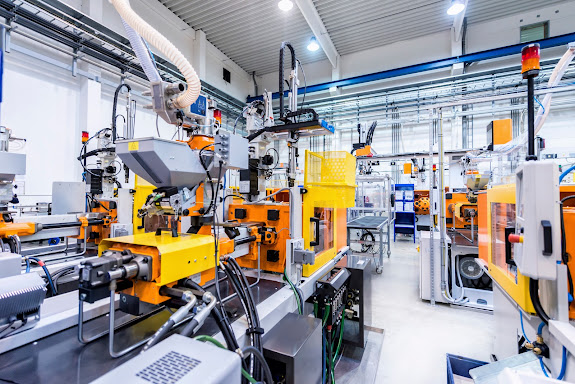5 Benefits of Industrial Automation You Didn't Know About
You’ve heard of industrial automation, but maybe you don’t know much about it. The concept has been around since the Industrial Revolution and has steadily become more advanced with time, yet many people still aren’t sure how to make the most of this technology in their companies. Here are five benefits of industrial automation that you may not know about.
Accurate, consistent production
Industrial automation enables a production process to run in an accurate, consistent manner. As long as all machines are functioning properly, industrial automation is used to ensure that every product matches up with its intended specifications. In other words, you can expect industrial automation to eliminate human error or negligence from a production process—which will improve your product quality and save time and money in other areas of your business.
Increased quality
Manufacturers gain higher-quality products by reducing human error and consistently operating machines at precise rates. This is especially important for industries that require a certain level of consistency in manufacturing their products. Industries such as chemicals, pharmaceuticals, and food production are prime examples. Manufacturers can save time, money, and resources with industrial automation. Time is saved because there’s no need to pay additional employees to keep up with demand; all machines operate in synchronization to get work done quickly and efficiently.
Faster lead times
By being able to manufacture without human interference, industrial automation streamlines and speeds up production, which means fewer bottlenecks and longer lead times. Why is that so important? Well, faster lead times mean your customers will get their products sooner. And, because they have access to those products sooner, they’ll be able to start using them before competitors do.
Improved inventory management
It's not just about direct costs. Sometimes, lost sales can hurt your business more than a few extra dollars on an item. Inventories that aren't well tracked and controlled can lead to selling low-demand items at much higher prices than normal because they're all you have left in stock. This can cause major problems, especially if you're trying to move out of a market with competitors snapping up those items.
Easier plant maintenance
Because industrial automation equipment is remotely controlled by computers, it’s easier to locate maintenance issues and address them. If a machine fails, for example, you can find out if there’s a problem with that particular machine or if it’s linked to an issue in another part of your system. If multiple machines are broken at once, chances are they’re all linked—and that could cost your company time and money.
conclusion:
Industrial automation is more than just a technological advancement. It’s an innovation that can help drive business efficiency and profitability across your organization—improving your bottom line, while improving your safety in the workplace.


Comments
Post a Comment